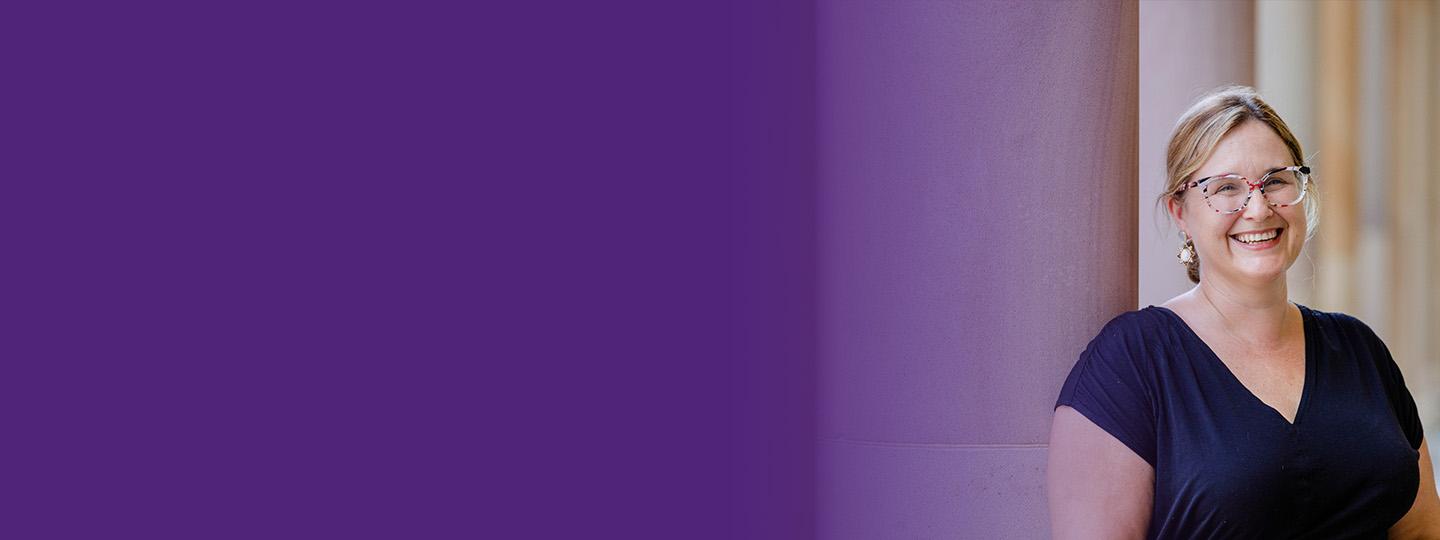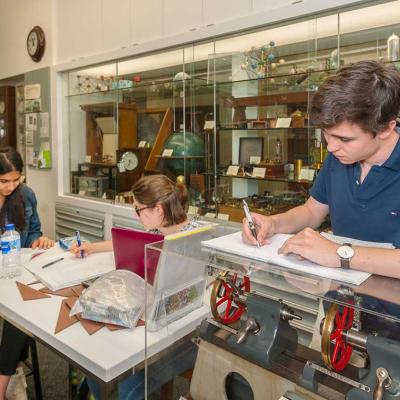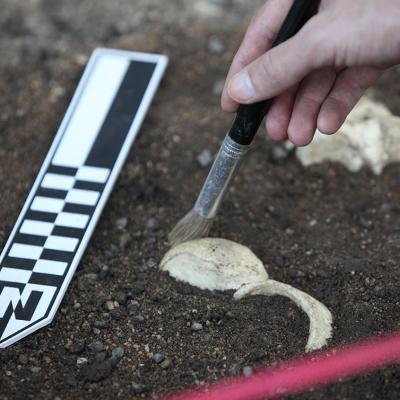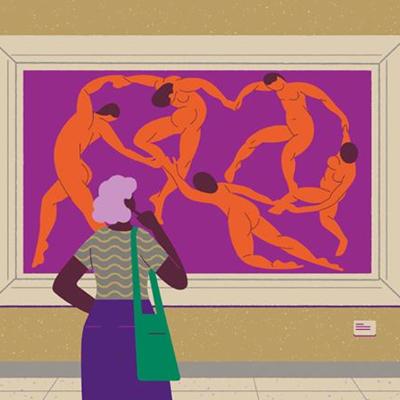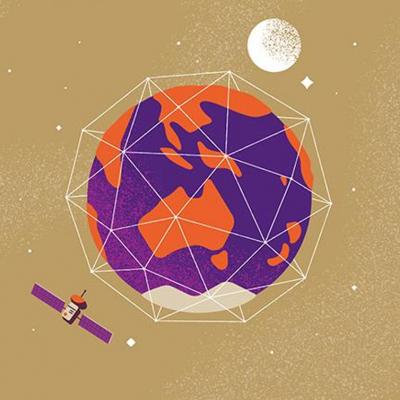It is a fascinating concept that a social system or culture can be read through the lens of the museum, its objects and display practices.
Having worked as a communications professional in the arts, culture and not-for-profit sector for more than 20 years, Dr Caroline Wilson-Barnao has spent her fair share of time at museums, art galleries and libraries.
As Director of UQ’s Master of Museum Studies program, she values museology as a discipline as it explores the ever-evolving role of galleries, libraries, archives, and museums (GLAMS) in society.
“It helps us to make sense of the history through the collection and preservation of objects, which in turn plays an important role in helping us to understand society both now and in the future,” says Caroline.
This is where Caroline’s interest lies – in the role museums have in shaping society.
Falling in love with the inclusivity of museums
Caroline’s children spent a lot of their youth exploring the hidden treasures found in galleries, museums and libraries, and she was impressed with the inclusiveness and welcoming space it offered them as a family.
“We loved being surrounded by art and culture with others who valued the same thing.”
It was actually the children’s spaces at the Queensland Gallery of Modern Art (QAGOMA) that got Caroline thinking about the transformation of the museum as a public space that cares for both the past and the present.
The role of the museum has changed dramatically since its inception. Once solely a space of research and preservation, it is now also a space of display and interpretation.
This is important because the museum plays a critical role in making arts and culture available to all people.
“It is a space for everyone – students, travellers, the homeless, families, people of different cultures, LGBTQIA+ communities and so forth.”
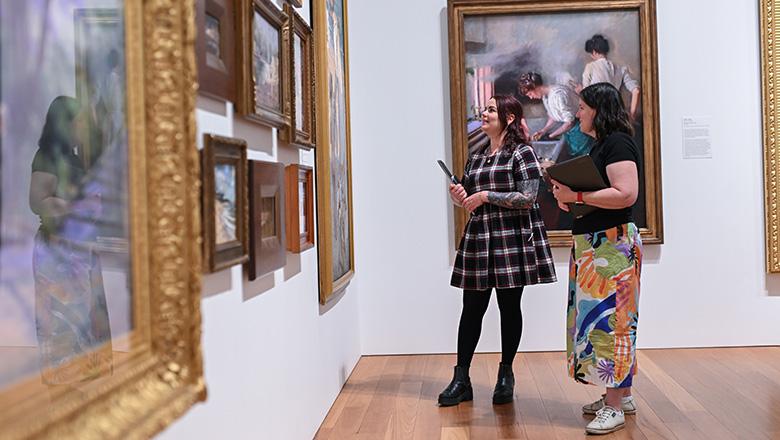
The transformation of GLAMS
Caroline has always wanted to attract audiences to the arts and humanities, witnessing firsthand the cultural transformation of GLAMS that has taken place before her eyes.
“I am passionate about the transformation of the museum as a public space and am really interested in the role of technology in shaping that change,” she says.
“By looking at what museums offered historically, we can start to think about what it is that we want from museums both now and in the future.”
It is a space that is incorporating new technologies. These days, we also access both digital and physical artefacts. We take out digital books and use virtual reality to view objects.
This became abundantly clear during the coronavirus pandemic when many museums needed to close for long periods and people logged on to museums online.
“This practice highlights the importance of these institutions in maintaining our mental wellbeing during a time of crisis.”
UQ’s St Lucia campus boasts some of Queensland’s best museums, including UQ Art Museum, Anthropology Museum and RD Milns Antiquities Museum.
Who can study museology?
Museology is a cross disciplinary field and as a result, museum studies master’s programs attract people from a broad range of undergraduate disciplines, from teaching, art history, archaeology, and anthropology right through to marketing and communication. Students also come directly from industry with an aim to upgrade their professional qualifications.
“Just because your undergraduate degree isn’t in history, don’t assume that you can’t complete a master’s in museum studies,” Caroline says.
As a profession, museum studies is inherently interdisciplinary and that is exactly what Caroline loves about it!
When studying a museum studies master’s program at UQ, students acquire tangible professional skills in object handling and photogrammetry so they can work in areas such as curating, preservation, public programming, and education.
Discover UQ’s master’s in museum studies
Watch our video to find out how you can build on your professional experience and make lasting and impactful industry connections while studying the Master of Museum Studies at UQ.
Caroline’s teaching style
“I enjoy working with students. They always come with different perspectives and ideas that challenge my own mindset,” Caroline says.
She likes to mix theory with practice, and her learnings extend beyond the classroom.
“My students embark on a journey of exploration and innovation in the digital age.”
An essential component of UQ’s museum studies program is gaining professional workplace experience and making contacts in the industry. Placements and internships where students work collaboratively with industry leaders is of upmost importance.
“I want my students to graduate with the expertise and knowledge to shape the future of our museums,” she says.
“In addition to investigating the role of museum in public life, my assessments are generally designed to give students the opportunity to engage critically with their ideas and create artifacts that are expressions of this investigation, such as podcasts and digital exhibitions.”
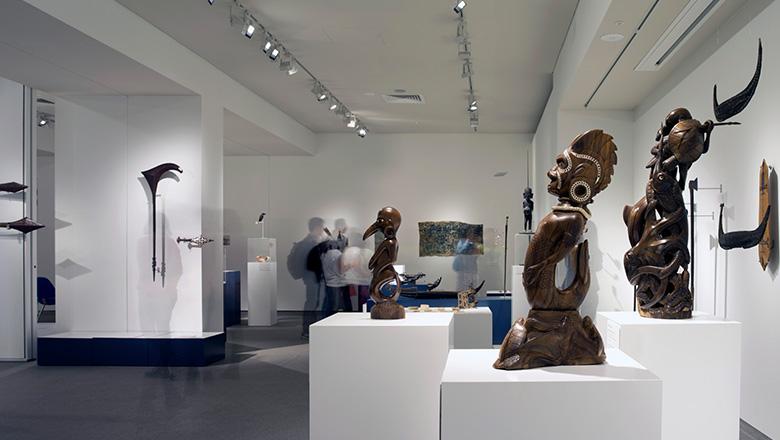
From the exhibition Solomon Islands Re-enchantment and the Colonial Shadow, UQ Anthropology Museum. Director of Curation: Diana Young. Photo by Carl Warner.
What’s next?
Caroline is currently working on a book with a colleague from the National Museum of Australia that explores how museums collect social media. Her analogy is that Anne Frank used pen and paper to record her experience of war. These days, young people are using TikTok to do the same thing.
“In a digital era, we upload content to media platforms with the assumption that we can access it at any time, but in reality we can't assume that our social media content will be preserved for future generations,” she says.
Queensland is a place where creativity flourishes across cultures, with hundreds of museums and galleries ready to be explored.
“I believe that it is an exciting time to be entering museum studies as we live in an era when the museum and what it stands for continues to change and evolve.”
There are limitless career opportunities in the GLAM sector for people with a passion for art, culture and history.
Ready to delve into the evolving world of museology? Explore UQ’s Master of Museum Studies.

